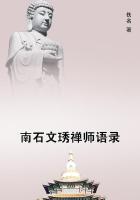It has often been doubted whether or not Adam Smith held this theory of rent.Sometimes he uses language which seems toimply it,and states prepositions which,if developed,would infallibly lead to it.Thus he says,in a passage already quoted,"Such parts only of the produce of land can commonly be brought to market of which the ordinary price is sufficient toreplace the stock which must be employed in bringing them thither,together with its ordinary profits.If the ordinary price ismore than this,the surplus part of it will naturally go to the rent of land.If it is not more,though the commodity can bebrought to market,it can afford no rent to the landlord.Whether the price is or is not more depends on the demand."Again,in Smith's application of these considerations to mines,"the whole principle of rent,"Ricardo tells us,"is admirably andperspicuously explained."But he had formed the opinion that there is in fact no land which does not afford a rent to thelandlord;and,strangely,he seems to have seen that this appearance might arise from the aggregation into an economicwhole of parcels of land which can and others which cannot pay rent.The truth,indeed,is,that the fact,if it were a fact,thatall the land in a country pays rent would be irrelevant as an argument against the Andersonian theory,for it is the same thingin substance if there be any capital employed on land already cultivated which yields a return no more than equal to ordinaryprofits.Such last-employed capital cannot afford rent at the existing rate of profit,unless the price of produce should rise.
The belief which some have entertained that Smith,notwithstanding some vague or inaccurate expressions,really held theAndersonian doctrine,can scarcely be maintained when we remember that Hume,writing to him after having read for thefirst time the Wealth of Nations ,whilst expressing general agreement with his opinions,said (apparently with reference toBk.I,chap.vii),"I cannot think that the rent of farms makes any part of the price of the produce,but that the price isdetermined altogether by the quantity and the demand."It is further noteworthy that a statement of the theory of rent is evenin the same volume,published in 1777,which contains Anderson's polemic against Smith's objections to a bounty on theexportation of corn;this volume can hardly have escaped Smith's notice,yet neither by its contents nor by Hume's letter washe led to modify what he had said in his first edition on the subject of rent.
It must be remembered that not merely the unequal fertilities of different soils will determine differences of rent;the more orless advantageous situation of a farm in relation to markets,and therefore to roads and railways,will have a similar effect.
Comparative lowness of the cost oi transit will enable the produce to be brought to market at a smaller expense,and willthus increase the surplus which constitutes rent.This consideration is indicated by Ricardo,though he does not give itprominence,but dwells mainly on the comparative productiveness of soils.
Rent is defined by Ricardo as the price paid for the use of "the original and indestructible powers of the soil."He thusdifferentiates rent,as he uses the term,from what is popularly designated by the word;and,when it is to be taken in hissense,it is often qualified as the,"true"or "economic"rent.Part of what is paid to the landlord is often really profit on hisexpenditure in preparing the farm for cultivation by the tenant.But it is to be borne in mind that wherever suchimprovements are "amalgamated with the land,"and "add permanently to its productive powers,"the return for them followsthe laws,not of profit,but of rent.Hence it becomes difficult,if not impossible,in practice to discriminate with any degreeof accuracy the amount received by the landlord "for the use of the original powers of the soil"from the amount received byhim as remuneration for his improvements or those made by his predecessors.These have raised the farm,as an instrumentfor producing food,from one class of productiveness to a higher,and the case is the same as if nature had originally placedthe land in question in that higher class.















